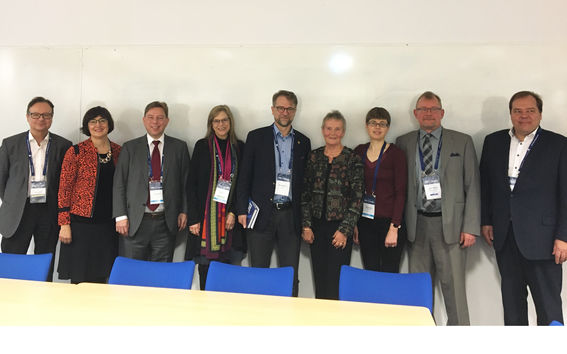Reijo Luostarinen’s legacy can generate a new agenda for IB research

Reijo Luostarinen (1939–2017), Professor of International Business at the Helsinki School of Economics and EIBA Fellow, published his first work on the international operations of firms – ‘Planning for Export Operations’ – in 1966. His study of the topic culminated in the publication of his 1979 PhD thesis, titled Internationalization of the Firm. His thesis involved an intensive study of the population of Finnish industrial firms that had commenced international operations by that time. The main methodological pillars of his study were field interviews, action research (in the form of close involvement with firms through a busy consulting career) and a large-scale, longitudinal survey of Finnish firms.
Reijo Luostarinen’s 15-year research effort is perhaps unsurpassed
Reijo Luostarinen provided such a comprehensive dataset and analysis of a population of firms. The survey on which his PhD thesis was based included 77% of internationally active Finnish firms (1006 out of an estimated population of 1300 firms), covering 95% of Finland’s export revenue at the time. Out of this impressive dataset, he developed a model of the internationalization processes of firms. Reijo continued collecting datasets within the FIBO (Finland’s International Business Operations) project that spanned several decades. He and his research groups ran the original survey again in 1983, 1990 and 1997. He also collected large datasets on foreign firms’ operations in Finland and on Finnish subsidiaries abroad, among other research projects.
Reijo Luostarinen’s theoretical contribution is often regarded as providing confirmation of the Uppsala model of internationalization, which was developed at the same time as his own. Thus, Professor Rebecca Piekkari and Distinguished Visiting Professor Catherine Welch organized a panel discussion about Reijo Luostarinen’s legacy at the EIBA (European International Business Academy) annual conference held in Leeds. The panelists were Mika Gabrielsson (University of Eastern Finland), Perttu Kähäri (Aalto University), Mikko Kosonen (Aalto University, Chairman of the Board), Jorma Larimo (University of Vaasa), Rebecca Piekkari (Aalto University), Elizabeth Rose (Leeds University), Catherine Welch (Aalto University and University of Sydney), and Lawrence Welch (Melbourne Business School). They argued that the view of Reijo Luostarinen's work needs to be reassessed. Luostarinen’s contributions to theories of the internationalization of firms are much richer than this, and remain under-explored in IB research.
Further information:
Professor Rebecca Piekkari
Rebecca.piekkari@aalto.fi
If you are interested in watching the panel discussion, please ask Rebecca Piekkari to send you the file.
Read more news

VTT, Aalto University and GTK: How to ensure Finland captures the multi‑billion growth potential of mineral economy
Finland is rising to the forefront of the mineral economy through new research initiatives and closer collaboration
Significant donation to boost pavement engineering research and education
Companies and associations in the field have donated €400,000 to the School of Engineering.
Design strengthens industrial competitiveness – human-centered factory work at the core
Factory work is undergoing a transformation: new technologies and artificial intelligence are changing the content and roles of work. Aalto University’s Department of Design is studying this change from a human-centered perspective in the HiFive project.






